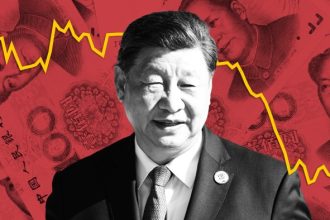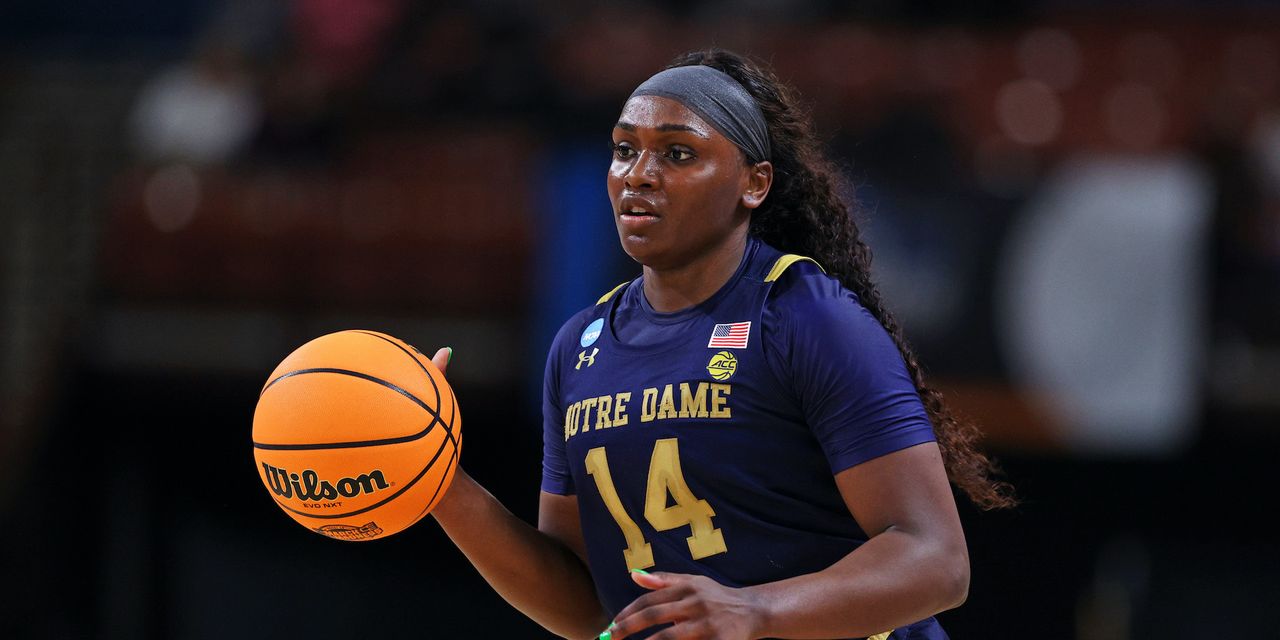This article is reprinted by permission from NerdWallet. The investing information provided on this page is for educational purposes only. NerdWallet does not offer advisory or brokerage services, nor does it recommend or advise investors to buy or sell particular stocks, securities or other investments.
When University of Notre Dame sophomore Calyn “KK” Bransford takes the court this upcoming basketball season, she’ll do so with a touch of glam thanks to her false lashes. She wants to look good while hooping, but wearing the lashes is also her job.
Bransford is under contract as a brand ambassador for Opulence Lashes and earns money by promoting the company’s products. That’s possible thanks to a sea change in NCAA rules governing college athletes, who can now make money from their “NIL” — name, image and likeness.
Prompted by a Supreme Court decision that invalidated restrictions on certain payments to student-athletes, the NCAA changed its rules on NIL income in 2021. While student-athletes still can’t be paid to play their sport or attend a specific school, they can receive money for things like ad deals, endorsements and appearances. Student-athletes’ NIL earning opportunities are governed by a patchwork of state laws and school and conference rules.
Before Bransford went to college, she and her parents studied the NIL rules that apply to her. Now, her parents help her manage the money she earns. “A percentage of the money I spend, but my parents put the rest in a savings account,” Bransford says. “It’s important to have someone helping you who is older, more experienced, who knows about taxes and bills.”
Not every student-athlete has a sound financial support system like Bransford, so many of them need guidance managing NIL income. For this cohort of earners, NIL money can be used to pay for education expenses, hire professional support and invest in their future. With a prudent financial strategy, NIL income could be the foundation for generational wealth for some athletes.
See: NIL deals for NCAA athletes: College collectives that pay students are here to stay
Consider a marketplace
If you’re hoping to monetize your NIL, you may want to join a marketplace, a digital platform that helps match student-athletes with companies or individuals who want to work with them. Some marketplaces are affiliated with a school, and some aren’t.
Working with a marketplace isn’t required to monetize one’s NIL, but it can make the process easier. Student-athletes should report all NIL activity to their school, which evaluates every deal to ensure it’s compliant with state law and the school’s policies. College and university marketplaces automatically process NIL contracts through their compliance departments so the student doesn’t have to submit the paperwork.
Some marketplaces charge fees, so it’s important that students determine whether the cost outweighs the benefit of being promoted by the marketplace. “Do your due diligence,” says Justin Bass, sports and entertainment managing director at MAI Capital Management. “Are you getting something more for the fee?”
Also see: Where high school athletes can profit from name, image and likeness deals, there’s opportunity for entrepreneurial teens
Pay for school
Only 1% of student-athletes receive full-ride scholarships that cover all college expenses, so it makes sense to use NIL income to pay for school. NIL compensation doesn’t affect athletic scholarships, but depending on the amount of the NIL earnings, a student-athlete may no longer qualify for need-based financial aid.
Those making NIL income should talk to their school’s financial aid office to determine how that money will affect their aid package. “If I get $50,000 via NIL activities, I might need to set aside a good portion of that to pay for my tuition next year,” says Adam Cocco, assistant professor of sport administration at the University of Louisville.
Get professional help
Managing NIL rules and income in addition to keeping up with athletics and academics can be overwhelming. Consider hiring a professional like a financial adviser, and thoroughly vet anyone before adding them to your team.
Former University of Miami track star and Olympian Lauryn Williams turned pro in 2004 when she accepted a $200,000 contract from Nike
NKE,
an amount she described as “awesome but terrifying.”
She admits to making financial mistakes, which she attributes to taking the advice of others who didn’t have experience with significant sums of money. After retiring from professional sports, Williams became a certified financial planner to give others the financial help she needed as a 20-year-old college student.
Williams advises working with a fee-only certified financial planner and a certified public accountant or enrolled agent for help filing taxes. Student-athletes who earn more than $400 need to file. Taxes can be tricky, especially for those who earn NIL income in different states.
“Get a professional in your life even if it costs money,” Williams says. “This is a unique earning situation, and you don’t want to mess that up.”
Check out: Take MarketWatch’s 2023 Financial Literacy Quiz. Will you get 10/10?
‘Let the money transform your life’
According to the NCAA, fewer than 2% of student-athletes turn pro, and even for those who do, a professional athletic career usually lasts just five to seven years, according to a study from the RBC Sports Professionals group. These sobering facts make investing a way to safeguard one’s future, whether sports are a part of it or not. “Let compound interest work for you, and let the money transform your life and how it’ll look 20, 30 years from now,” Cocco says.
NIL income qualifies student-athletes to contribute to individual retirement accounts, or IRAs, and their self-employed status unlocks access to simplified employee pension IRAs and solo 401(k)s. A financial adviser can help choose the best retirement accounts for you.
Williams recommends investing in one’s financial education, too. If your school doesn’t offer personal finance education, Williams says, use some NIL income to pay for an online course.
“With the NIL money, you can have fun with it — or do something responsible with it,” she says. “This is your opportunity to get yourself on track for retirement.”
More From NerdWallet
Jae Bratton writes for NerdWallet. Email: [email protected].
Read the full article here





